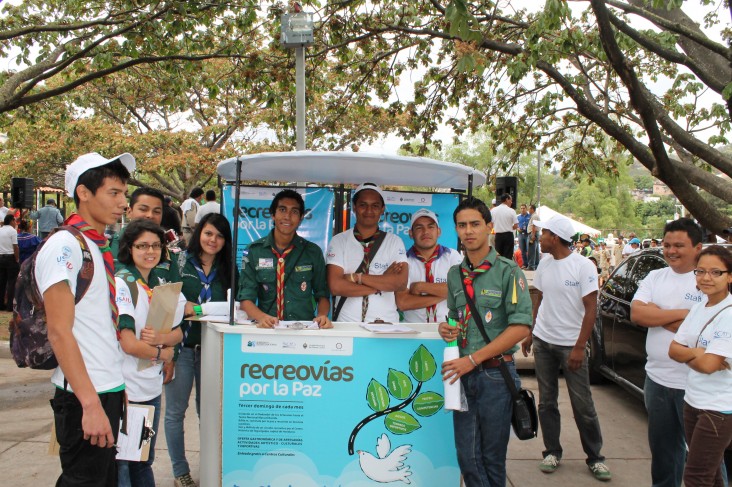- What We Do
- Agriculture and Food Security
- Democracy, Human Rights and Governance
- Economic Growth and Trade
- Education
- Environment and Global Climate Change
- Gender Equality and Women's Empowerment
- Global Health
- Humanitarian Assistance
- Transformation at USAID
- Water and Sanitation
- Working in Crises and Conflict
- Disaster Assistance
- Stabilization and Transitions
- Where We Work
- Afghanistan
- Armenia
- Bosnia and Herzegovina
- Burkina Faso
- Colombia
- Ethiopia
- Iraq
- Libya
- Malaysia
- Mozambique
- Niger
- Nigeria
- Sudan
- Ukraine
- Closed Programs
- Afghanistan
- Albania
- Angola
- Bolivia
- Bosnia & Herzegovina
- Burma
- Burundi
- Chad
- Colombia
- Croatia
- Cuba
- Côte d'Ivoire
- Democratic Republic of Congo
- East Timor
- Guatemala
- Haiti
- Honduras
- Indonesia
- Iraq
- Kenya
- Kosovo
- Kyrgyz Republic
- Lebanon
- Liberia
- Mali
- Nepal
- Nicaragua
- Nigeria
- North Macedonia
- Northern Cameroon
- Pakistan
- Peru
- Philippines
- Rwanda
- Serbia and Montenegro
- Sierra Leone
- Somalia
- South Sudan
- Sri Lanka
- Sudan
- Syria
- Tunisia
- Uganda
- Venezuela
- West Bank/Gaza
- Yemen
- Zimbabwe
- Background
- Criteria for Engagement
- Multi-Media
- Opportunities
- Our Stories
- Where We Work
- Conflict Mitigation and Prevention
- Countering Violent Extremism
- Disaster Risk Reduction
- Peacebuilding and Reconciliation
- Recovering From Crisis
- Resilience
- Tech Challenge for Atrocity Prevention
- Women, Peace, and Security
- World Humanitarian Day
- U.S. Global Development Lab
Speeches Shim

1998 - 2000
WHY USAID/OTI WAS IN HONDURAS
Hurricane Mitch wrought great destruction in Central America in October 1998. The initial estimates of the human toll were immense—more than 10,000 died and more than one million people became homeless. In Honduras alone, the damage to infrastructure and productive capacity was estimated at $3 billion. USAID/OTI entered Honduras in 1998 at the request of USAID’s Bureau for Latin America and the Caribbean and USAID/Honduras to deliver short-term assistance addressing high-priority needs in housing and economic reactivation.
USAID/OTI'S ROLE IN HONDURAS
USAID/OTI's focus was on maximum participation of beneficiaries, local organizations and other donors in a variety of team efforts, including:
- An emergency housing project for Tegucigalpa flood victims housed in temporary shelters in the city; and
- A longer-term activity to repair key transportation links in the worst hit areas of the country, thereby helping to spark economic reactivation in those areas.
PROGRAM HIGHLIGHTS
USAID/OTI's program:
- Provided beneficiary-specific support to non-governmental organizations (NGOs) to construct 2,000 housing units for USAID/OTI beneficiaries;
- Provided technical and programmatic support to these same NGOs to help them implement their housing activities; and
- Assisted USAID/Honduras to prepare to implement a roads and bridges activity.
2012-2017
WHY USAID/OTI WAS IN HONDURAS
Honduras was plagued by one of the world’s highest homicide rates. The untenable situation created a political crisis in 2012 and provoked widespread demands to reduce levels of violence. This triggered a concentration of U.S. efforts to address the citizen-security challenge. The extraordinary level of violence pushed high numbers of Honduran migrants, including tens of thousands of children, to the U.S.-Mexico border. Honduras’ geographic and cultural proximity to the United States render its stability, security and success critical to U.S. interests.
USAID/OTI'S ROLE IN HONDURAS
USAID/OTI supported the Honduran Government’s efforts to reduce homicides and other violent crime. The program’s objective was to disrupt the systems, perceptions and behaviors that support violence by:
- Empowering citizens and institutions to act together and cooperatively increase security in targeted communities and sectors; and
- Increasing citizens’ confidence in, and the performance of, Honduran government institutions.
The program understood that communities who trust government institutions will be active partners in preventing crime and violence. USAID/OTI activities focused on the creation of low-tech and low-cost models of violence disruption that the Government of Honduras can implement.
PROGRAM HIGHLIGHTS
- USAID/OTI assisted with security improvements, such as better lighting; fostered security committees; and provided training in several markets known for high levels of gang control, extortion, drug-dealing and homicides. These security improvements drove citizens’ positive perceptions of security, decreased extortion and increased sales.
-
The USAID/OTI Safe Schools Initiative brought together school officials, parents, the surrounding community, local government and the police to plan and implement small-scale security improvements to schools suffering from the effects of gang influence. In one case, a high school was on the verge of shutting down — enrollment had dropped from 1,700 students to 412. USAID/OTI programming resulted in a 98 percent enrollment increase to 816 students in 2016. The Honduran police then reached out on their own to 16 additional schools to begin developing similar security plans.
- USAID/OTI created community networks, building links with local government (including the police) to transform neighborhoods. In one community, USAID/OTI supported security improvements, facilitated the return of municipal health and transportation services and encouraged citizens to report crimes. As a result, homicides decreased substantially — from 22 in 2013 to only two in 2016. Furthermore, while only 29 percent of residents surveyed in 2013 thought security was improving, that number increased to 88 percent in 2016. No longer plagued by violence, the community is looking ahead to promote tourism and increase economic growth.

Comment
Make a general inquiry or suggest an improvement.